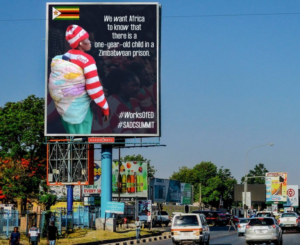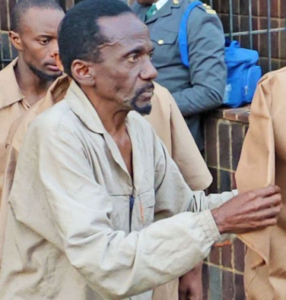BULAWAYO MAYOR DEFIES POLITICAL STORM TO LEAD CITY THROUGH CRISIS

In an era where political resignations are becoming increasingly commonplace, David Coltart, the Mayor of Bulawayo, Zimbabwe’s second-largest city, has made a bold decision to remain in office despite the recent upheaval within the opposition party, the Citizens Coalition for Change (CCC). This decision comes in the wake of Nelson Chamisa’s resignation as the President of the CCC and from the party itself on January 25, followed by the exit of several respected colleagues from Parliament.
Coltart, who has been at the helm of addressing Bulawayo’s myriad challenges, including severe water shortages and decades of neglect, has chosen to stay put, a choice inspired by an extensive consultation process with a wide cross-section of the Bulawayo community and beyond. Through platforms like X (formerly Twitter) and WhatsApp, Coltart sought the opinions of the public, receiving an overwhelming response urging him to continue his tenure.
The mayor’s decision is deeply rooted in his commitment to democracy, freedom, and the welfare of Bulawayo’s residents. Influential figures in Zimbabwe’s struggle for democracy, some with over six decades of activism, have also implored Coltart not to resign, underscoring the critical role he plays in the city’s governance and the broader democratic movement in Zimbabwe.
Bulawayo’s unique challenges, especially its dire water crisis, have seen Coltart involved in critical initiatives aimed at providing both immediate and long-term solutions. His resignation, he believes, could jeopardize these efforts and ultimately harm the city and its inhabitants. This perspective is further reinforced by his conversation with Nelson Chamisa prior to the latter’s resignation. Chamisa’s advice was for Coltart to persist with his work, signaling a shared understanding of the importance of their roles in these tumultuous times.
Coltart’s stance is not just a refusal to resign; it’s a declaration of his unwavering commitment to fighting for a democratic Zimbabwe. Drawing inspiration from historical figures who stood against tyranny, and guided by his Christian faith, he emphasizes the importance of being “salt and light” in a society plagued by corruption and darkness. This metaphor captures his belief in the power of individual action to inspire change and uphold democracy.
Despite the difficulties faced in Parliament, where the constitutional role has been undermined, Coltart argues for the importance of maintaining democratic spaces, however constrained they may be. He likens his decision to those made by historical figures who, through their solitary efforts, managed to speak truth to power and enact significant change.
Addressing concerns that his decision might be perceived as a betrayal of Nelson Chamisa or motivated by personal gain, Coltart clarifies his position. He has always seen his role as mayor not as a quest for personal benefit – his monthly allowance stands at a meager US$25 – but as a commitment to public service, inspired by Chamisa and others who have championed democracy in Zimbabwe.
Coltart’s resolve to stay on as mayor is a testament to his dedication to Bulawayo’s residents and a refusal to allow political maneuvers to dictate the future of the city. In a political landscape marked by resignations and recalls, his decision is a beacon of hope and a reminder of the importance of steadfast leadership in times of crisis. As Bulawayo navigates its challenges, Coltart’s leadership not only offers stability but also symbolizes the enduring fight for democracy and the rule of law in Zimbabwe.




Coltart’s refusal to resign is a bold statement of his commitment to democracy and the people of Bulawayo. His willingness to stand firm in the face of political uncertainty and his determination to be a force for good in a corrupt system is admirable. Kudos to him for being a beacon of hope and integrity
While Coltart’s decision to stay may seem noble, it could also be seen as an unwillingness to let go of power. Sometimes, stepping aside can open the door for new ideas and fresh leadership. His choice might inadvertently stifle the growth of the opposition movement. Coltart’s insistence on remaining in office, despite the political turmoil, raises questions about his true motivations. Is he genuinely committed to democracy, or is he clinging to his position for personal gain? The meager allowance argument feels like a distraction from potential underlying ambitions.
David Coltart’s decision to stay on as mayor of Bulawayo is commendable. In a time when political leaders often choose the easy way out, his commitment to addressing the city’s challenges and upholding democratic values is truly inspiring. His dedication to public service, despite the obstacles, sets a powerful example for others.It’s refreshing to see a leader like Coltart who prioritizes the welfare of the community over political games. His resolve to continue working for Bulawayo, especially amidst severe issues like the water crisis, demonstrates his genuine concern for the city’s residents. We need more leaders like him in these turbulent times.
The challenges in Bulawayo, particularly the water crisis, have persisted despite Coltart’s leadership. Staying on as mayor might not bring the much-needed change the city requires. Perhaps it’s time for a new approach and new leadership to tackle these ongoing issues more effectively. While Coltart’s resolve is admirable, his decision to stay in a dysfunctional system might be counterproductive. By not resigning, he could be inadvertently legitimizing a flawed political landscape. True change often requires radical actions, and maybe stepping down would have sent a stronger message.